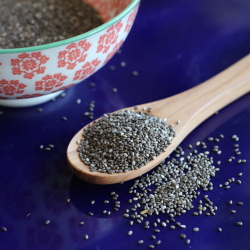Food as Medicine
One man’s medicine is another man’s poison, so always consider your own individual circumstances. We are all unique and have very different requirements to achieve our own optimal health.
Knowing which foods to incorporate into your diet for therapeutic effect requires an understanding of what the beneficial compounds do in your body and them matching those to your own specific needs in a way that fits your circumstances and your current health goals.
-
Genetics. Our individual genetics can determine which particular nutrients we have higher requirements for. Family history can provide clues to our susceptibilities or we can get genetic testing done.
Stage of life. Our nutrient requirements change throughout life. What we need as a baby or growing child is very different to the needs of a teenager or young adult, which again is different to the needs of pregnant or breastfeeding women, exhausted mothers, overworked adults, premenopausal women and seniors.
Biochemical imbalances. Using a functional medicine approach, you can identify your imbalances. Examples include insulin resistance – the underlying imbalance for conditions such as type 2 diabetes, metabolic syndrome and polycystic ovary syndrome; dysbiosis – an imbalance in gut bacteria that can trigger conditions such as IBS, inflammatory bowel diseases, toxicity, anxiety and various digestive symptoms ranging from bloating to constipation; Increased intestinal permeability, also known as leaky gut – which leads to food sensitivities and all kinds of autoimmune diseases such as multiple sclerosis, lupus, type 1 diabetes, rheumatoid arthritis, alopecia, Hashimotos thyroiditis, Graves’ Disease, Sjogrens, and many others.
Current symptoms. Symptoms such as fatigue, bloating, pain, rashes, constipation, gas, insomnia etc., are how our body communicates to us that something is wrong and provide clues to what the problem may be. The many symptoms, when looked at together, can help identify specific nutrient requirements. It also helps to look at past symptoms too as when we ignore our symptoms they come back in different ways.
Lifestyle. How we live our lives also determines the right diet for us. If we are under stress we need nutrients to support our adrenals. If we are working nights or doing shift work then our daily bio-rhythms need to be looked at. Our jobs can expose us to specific pollutants and toxins that we need to be able to detoxify, so providing the nutrients that support those pathways is essential.
Medications. Many pharmaceutical drugs deplete us of certain nutrients which we then need to replace to avoid the side effects of those drugs. Some drugs interact with compounds in food in both positive and negative ways so taking medications into account will help find the best foods to support you. If you are taking herbs or supplements these should also be considered as nutrients tend to work in teams and need to be in the correct ratio. Too much of one nutrient not properly balanced by it’s companion nutrients can cause problems.
Once you’ve established your nutrient needs, it helps to know what foods they are found in. Nutrients do not act alone, and although certain situations require supplements to create therapeutic effects, the best way is always with whole foods rather than isolated nutrients. In foods the nutrients exist in an exquisite balance with other complimentary nutrients, providing benefits that science is yet to fully understand. Wherever possible, food is the recommended way to nourish yourself.
To take things even further and achieve greater results, you can look at optimal ways to prepare and combine foods to optimise absorption of the nutrients you require. For example, if you are hoping to increase intake of fat-soluble nutrients yet don’t combine those foods with a healthy source of fat then you are unlikely to absorb those nutrients effectively. If you are attempting to increase iron levels, this can be better achieved by combining iron-rich foods with vitamin C-rich foods.
Meal timing can also be of help. Protein requires healthy levels of stomach acid to be properly broken down, which is generally highest in the morning and lowest at night. Stomach acid requires water to make, so ensure you drink water prior to eating so that the acid can be ready when needed, as drinking water with meals will dilute the stomach acid making it less potent in doing it’s job.

